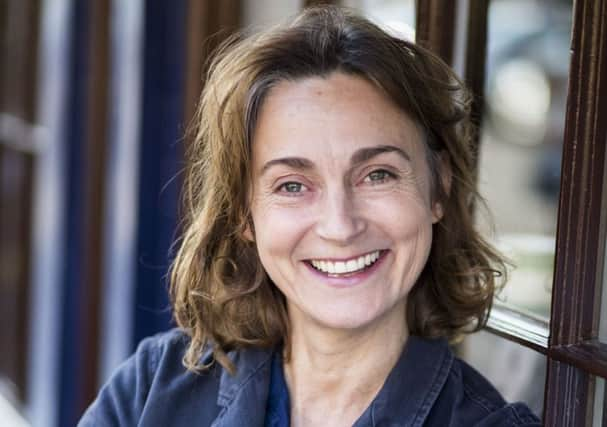Books review: Aye Write!


Various venues, Glasgow
Well, there’s nothing like that when a rock star like Brett Anderson comes to town. It doesn’t matter that it’s almost 20 years since Suede last topped the charts or that it’s a full quarter of a century since they first did. There’s a forest of hands when the audience get their chance and the fans just pile in:
“Sleeping Pills. I just can’t play that loud enough, man.”


“Animal Nitrate. Best track of the last 25 years.”
“Suede made me feel special. You inspired me to learn English and move to the UK.”
Advertisement
Hide AdSuede’s frontman has said that the band always wanted to inspire loyalty, to create their own tribe. It’s worked: here they all were in front of him, loyal, affectionate and only slightly greying. Anderson himself hasn’t changed much: the fringe still flops, the cheekbones could still slice, and the still-slender hips could presumably, given the opportunity, snake.
He was at Aye Write! on Wednesday to talk about Coal Black Mornings, his memoir of the pre-stardom years. Anything after 1992, when Suede signed their first record deal and were widely hailed as “the best young band in Britain” would have been, he said, somebody else’s story: or at least one in which other people were pivotal. But before that: the early years of trying to work out who they were and what kind of music they needed to play, of growing up poor in a West Sussex council house attached to a village attached to the commuter belt, with an eccentric, classical music-obsessed taxi driver father and an artistic mother who died when he was 21 – well, that was his own story, and that of his friends and of Justine Frischmann, his first love, and he could at least try do justice to that.


Writing had, he said, brought back feelings he hadn’t felt for years. It had taken him back to the time when the future was still wide open, when a host of Sliding Doors-style alternatives still hadn’t slid by. Maybe if Frischmann hadn’t sashayed over to join him at the university canteen he’d have been the town planner he was training to be. Or if his mother hadn’t died young. Or if the band had given up in those early gigs when they outnumbered the audience. Or if he had started off at a time when, as now, working class kids don’t get grants and internet piracy whittles away at marginal voices, and so no-one gets the chance to write music for masses who don’t belong to tribes. He seemed to be still wondering – engagingly, modestly – at his luck.
“There wasn’t anything else like you at the time,” a woman in the audience told him.
“Well, “says Anderson, “that’s for other people to say. [Beat] But you’re right.”
For the purposes of linking, I’m putting Charles Rennie Mackintosh down as working-class too, mainly because Glasgow gallerist Roger Billcliffe did in a talk on about Mackintosh and his Glasgow School of Art coterie. That, though, wasn’t the most important thing about “The Four” – Mackintosh, sisters Margaret and Frances Macdonald and Herbert MacNair. Originality was, and although Mackintosh clearly broke new ground with his 1890 watercolour Harvest Moon, Billcliffe contended that Mackintosh’s sister-in-law Frances did at least as much and possibly more than him to push the group’s creativity to a higher level.
Advertisement
Hide AdGail Honeyman may or may not be related to Honeyman and Keppie, the firm of architects for which Mackintosh worked, but Glasgow figures almost equally strongly in her work. In her spectacularly successful debut novel Eleanor Oliphant Is Completely Fine (“Spoiler alert: she’s not”), she pointed out that although her book wasn’t heavy on plot (“someone gets her hair done and goes to a party”) readers have been drawn along by its central character, a backroom office worker, who herself is led out of a life closed down by secret pain and loneliness.
“Small acts of kindness can be transformative,” she said. “That’s my experience of Glasgow too. It’s a very kind place and it’s not often portrayed as that.” Glasgow audiences may not have heard that before, so she got a surprise spontaneous round of applause.
Advertisement
Hide AdBut if there’s one writer whose latest novel summed up all of these themes it was the one with whom Honeyman shared a stage. Sarah Winman talked engagingly about her latest “redemptive” novel, Tin Man, which is narrated by a car assembly worker who is working-class (tick), lonely (tick), and wanted to be an artist (tick) but couldn’t so now is left imagining paths not taken (tick). Winman isn’t a rock star and she isn’t from Glasgow, but you can’t have everything.
DAVID ROBINSON